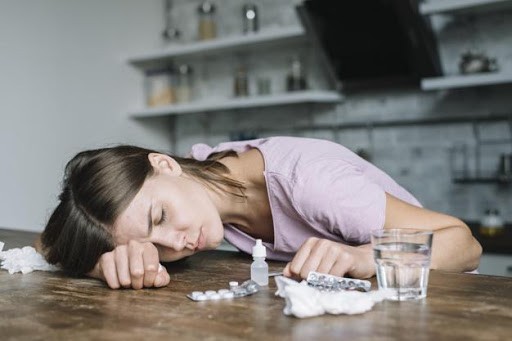
Opioids are a class of pain-relieving drugs that work by intermingling with the opioid receptors in your body’s cells. Some, like morphine, are made from the poppy plant, while others, like fentanyl, are synthesized in the laboratory. The commonly-prescribed opioids include oxycodone, methadone, Oxymorphone, morphine, hydrocodone, and codeine. Some other types of opioids, like heroin, are commonly abused illegal drugs.
The medication travels through the blood and attaches to the opioid receptors in the brain cells. The cells then release signals that muffle the individual’s perception of pain and boost the feeling of pleasure instead.
What is opioid addiction?
Opioid addiction is a chronic illness that causes major problems in your health and social life. A compulsive urge to use pain-relieving drugs to induce feelings of pleasure, even when they are not required by the body, characterizes the dependence. When used correctly under a doctor’s prescription, these pain medications are helpful. However, misusing these drugs will result in risks of addiction or dependence on it.
Opioids will change the brain’s chemistry, which ultimately leads to drug tolerance. Therefore, victims feel the need to take increased dosages in order to feel the same effect. Taking opioids for a long period of time instigates dependence on it. So, when you stop taking the drug, you will experience psychological and physical withdrawal symptoms like anxiety, muscle cramps, diarrhea, etc. However, you must not compare a dependence to addiction; individuals who take opioids for an extended period can become dependent, only a few experience the continuing, compulsive need for the drug, which characterizes addiction.
Opioid addiction causes serious health problems, including the risk of overdose. When taken in low doses, the medicines can make you feel sleepy, but higher doses can slow your heart rate and breathing, and could lead to death. When the dosage wears off, the individual may yearn for those good feelings to come back. This is the first sign that an individual is on the path towards opioid addiction. Both illegal and legal opioids carry the risk of overdosage, if the individual takes too much of it, or if it’s combined with other drugs, such as tranquillizers like benzodiazepines.
Signs and symptoms of opioid drug abuse include:
- Nausea/Vomiting
- Drowsiness
- Poor coordination
- Slurred speech
- Mood swings/Irritability
- Constipation
- Euphoria (feeling high)
- Anxiety/ Depression
- Sleeping more or less than normal
What factors influence opioid addiction?
Individuals who are addicted to opioid drugs may prioritize their usage over other activities in their life, which negatively impacts their personal and professional relationships. They are most vulnerable to addiction if they take the drugs using methods different from the prescribed methods, such as crushing the pills so that they can be injected or inhaled.
Women are biologically prone to suffering from severe or chronic pain when compared to men. So, they are prescribed opioid medications with higher dosage levels to be taken for a longer period of time. That’s why they are likely to become dependent or addicted to pain killers.
Other ways to influence addiction will be psychological, genetic, and environmental factors, like:
- Family history of substance abuse
- History of criminal activity or legal issues like DUIs
- Risk-taking or thrill-seeking behaviour
- Heavy tobacco usage
- A History of mental illness, such as anxiety or depression
- Poverty or Unemployment
- Stressful circumstances
- Previous alcohol or drug rehabilitation
How to prevent opioid addiction?
If you or someone you know has an opioid dependency, it is important to seek help to overcome the problem. The first step lies in self-control and breaking the addiction. The following steps will help in fighting the addiction:
Commit to quit – The first step is usually the hardest but learning to take control of behaviour with a solid commitment will stave off any compulsive urge to use the drugs.
Get help from a doctor – The biggest ally in helping anyone quit a prescribed drug. However, only a doctor will prescribe medication that will help ease the cravings.
Get support – Talking to a counsellor about the problem is of great help as it eases the burden out and makes the individual realize that he/she needs help. Organizations, dedicated to helping people who suffer from life-threatening addictions, exist. They will provide support along every step of the way with a proper treatment plan.
Use other treatment options – There are safe and long-term treatment options to help alleviate and cure chronic pain. These include non-pharmacological therapies and less-addictive pain medications.
Prevent addiction in your community – Dispose of unused opioids properly by contacting a recycling service, or the Drug Enforcement Administration or any local law enforcement agency. Talk to your pharmacist for guidance.

